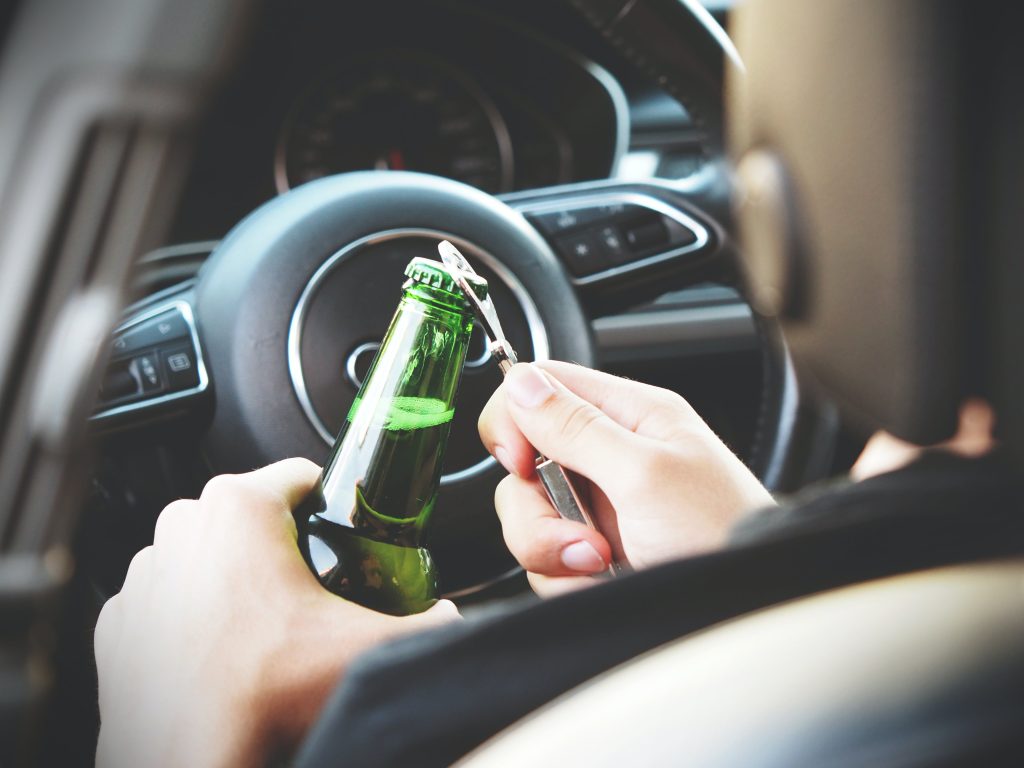Whether you’ve got a squeaky-clean record or a few tickets to your name, every driver will know that it’s best to avoid getting points on your licence. However, there are still plenty of questions you may have about the points system. That’s why we’ve set about to explain everything you need to know about penalty points. We’ll cover everything from the reasons why you could get points in the first place through to the day you can finally get rid of them.
What are penalty points?

When a driver commits and is convicted of a motoring offence, the courts may endorse your driving licence. When they do this, they’ll also add a certain number of points to your driving record.
Different numbers of points are given for each type of offence. In some cases, an offence will carry a set number of points. For example, failing to obey a ‘stop’ sign will get you 3 points.
In other cases, however, judges will be able to choose from a range of points, and will give you a punishment commensurate with your offence. Dangerous driving, for example, can get you anywhere from 3 to 11 points.
The purpose of adding points to your driving record is to monitor repeat offenders. Before the points system, individual fines and bans were the only options available to courts. Now, it’s possible to track a driver’s behaviour over a longer period, with harsher punishments for recidivists.
The use of points has also allowed a ‘totting-up’ system to be put into place. This means that drivers can be punished when they receive a specific number of overall points from multiple offences.
What are points given for?

Points are given for a wide range of motoring offences. You can see all the groups of offences in the table below.
Accident offences – Failing to stop after an accident
Careless driving – Driving without due care and attention
Construction and use offences – Using a vehicle with defective steering
Disqualified driver – Driving while disqualified by order of court
Drink – In charge of a vehicle while unfit through drink
Drugs – In charge of a vehicle when unfit through drugs
Insurance offences – Using a vehicle uninsured against third party risks
Licence offences – Driving otherwise than in accordance with a licence
Miscellaneous offences – Refusing to submit to an eyesight test
Motorway offences – Contravention of special roads regulations
Pedestrian crossings – Contravention of pedestrian crossing regulations with moving vehicle
Reckless/dangerous driving – Causing death by dangerous driving
Speed limits – Exceeding statutory speed limit on a public road
Theft or unauthorised taking – Aggravated taking of a vehicle
Traffic direction or signs – Failing to comply with double white lines
Aside from these main categories, there are several additional codes to be aware of.
Firstly, if you’ve been disqualified from driving via the ‘totting-up’ system, you’ll have the code TT99 placed on your driving record. This removes the points that caused your disqualification. It’s worth 4 points in its own right.
Meanwhile, if you get disqualified from driving while in Northern Ireland or the Isle of Man, this will transfer to your GB licence. You’ll also get a mutual recognition code on your driving record, which will begin with MR.
Lastly, there are several codes which relate to offences that you don’t directly commit. These include:
– Aiding, abetting, counselling or procuring offences
– Causing or permitting offences
– Inciting offences
These offences alter existing codes. For example, if you incited someone to drink-drive, you’d receive the code DR16 on your licence, while the person who actually drove the car while over the limit would receive DR10.
How many points does it take to get disqualified from driving?

Under the ‘totting-up’ system, you’ll be disqualified from driving if you receive at least 12 points in a period of 3 years. The length of this will vary depending on whether you’ve been disqualified before.
– Getting 12 or more penalty points in 3 years will generally see you handed a driving ban of 6 months.
– If you get a second disqualification in 3 years, your ban will usually be 12 months.
– Bans usually last 2 years if you get a third disqualification within 3 years.
The courts, however, have the discretion to choose the length of your ban, and may choose to hand down a longer sentence. They may choose to disqualify you even if you don’t have 12 points on your licence—particularly in cases of drink or drug driving.
Please note that, if you’re disqualified for 56 days or more, you’ll have to apply for a new driving licence, and may need to retake your test. The courts may also require you to take an extended test before driving again.
What are the rules for new drivers?
If you passed your driving test less than two years ago, you’re subject to stricter rules as a result of the New Drivers Act 1995. Under this law, any driver who obtains six or more points in their first two years since they passed their test will have their licence revoked.
A revocation is different to a disqualification. It means that you’ll lose your licence entirely, and will have to start from scratch. This includes applying for a provisional licence and passing both tests all over again.
How can I avoid getting points on my licence?

Most offences carry a mandatory number (or range) of penalty points. As such, avoiding points is rarely simple. In certain circumstances, you may be able to appeal against your conviction, but success via this route is far from guaranteed.
One way that you can avoid getting points on your licence is to take a speed awareness course. As the name suggests, this applies solely to drivers who have committed speeding offences. In fact, it’s even more specific than that. You must be invited to take a speed awareness course, and drivers are only eligible if they:
– Admit to driving the vehicle at the time of the offence
– Haven’t been convicted of any speeding offences in the last 3 years
– Haven’t attended another speed awareness course in the last 3 years
– Were travelling within certain limits:
— Lower limit: above the speed limit by 10% + 2 mph (e.g., 35 mph in a 30 mph zone)
— Upper limit: above the speed limit by 10% + 9 mph (e.g., 42 mph in a 30 mph zone)
As you can see, getting a place on a speed awareness course is far from guaranteed. What’s more, some police forces may have different standards when it comes to who to invite—or may not offer courses at all!
So, how else can you avoid getting points on your licence? It’s the simplest method of all: don’t commit an offence! Start tackling some of your bad driving habits before they turn into anything more serious.
